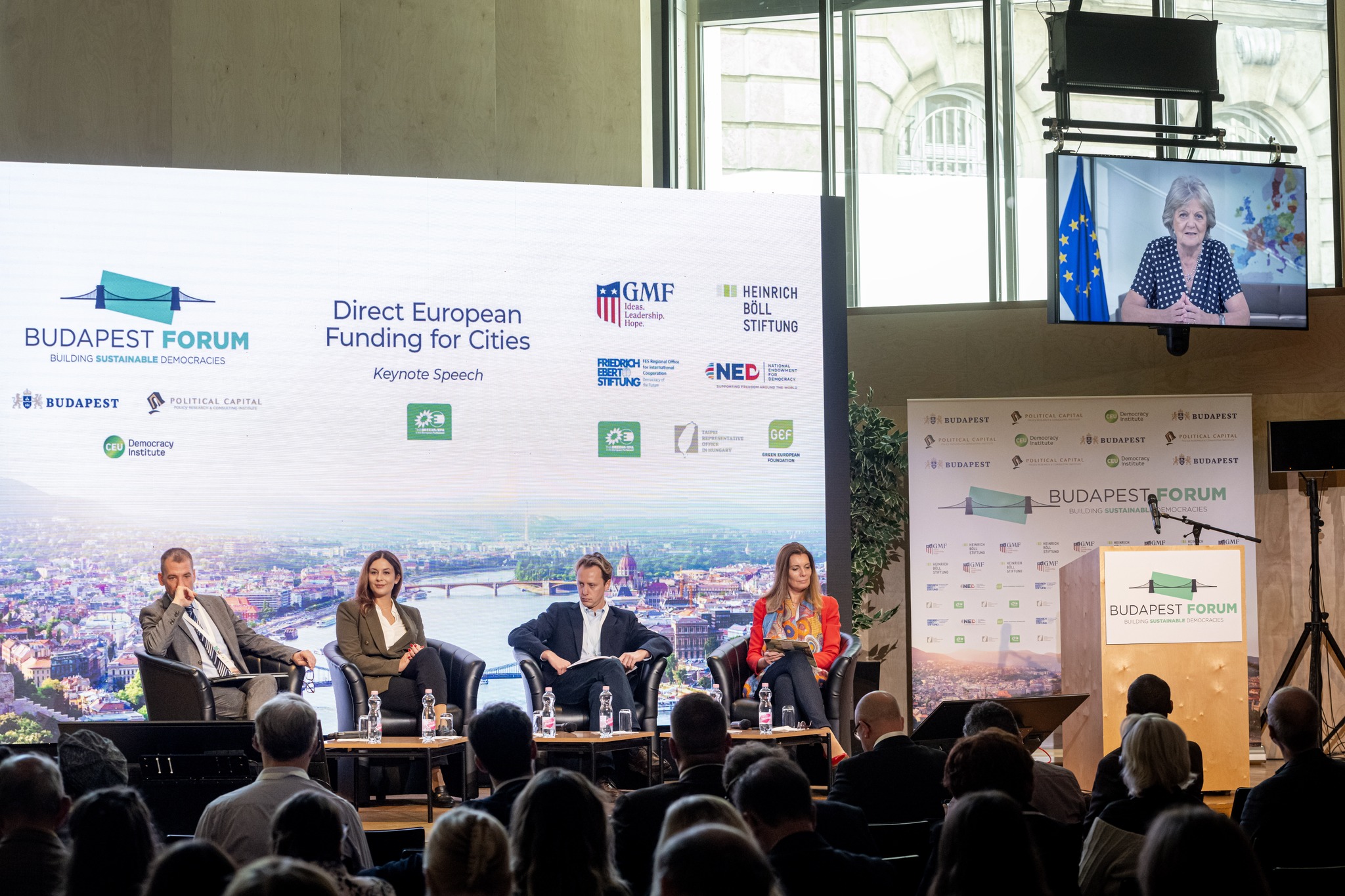Budapest Forum 2023 - Direct European Funding for Cities
2023-10-19
Speakers
- Katalin Cseh, Member of the European Parliament, Renew Europe
- Benedek Jávor, Head of Representation, Representation of Budapest in Brussels
- Pietro Reviglio, Policy Advisor, Eurocities
Moderator: Edit Inotai, Senior Fellow, Centre for Euro-Atlantic Integration
Background: Members of the panel discussed the possibilities, the challenges and the future of direct European funding for cities. The discussants took into account all perspectives, such as technological-bureacratical, economic and political.

Main takeaways
- There is a need for more direct funding for cities: because 1) „citizens are hurting” and 2) everyone should be able to benefit from the funds equally – regardless of which country they live in (be it autoritarian or democratic).
- Cities – as the keynote speaker, Elisa Ferreira emphasized as well – are the main catalizators: they serve as laboratories. Many changes and transitions happen first in the cities: they bring new ideas and innovations. Cities are the frontrunners to democratize EU and to achieve the common European goals.
- Katalin Cseh argued that when this issue was taken to the European Parliament and received more than two-third of the votes, it showed well that this cause really matters. She also proudly boasted with their achievement, namely the increase of the budget from 280 billion EUR to 320 billion EUR.
- While there is an agreement about the need for direct funds, Benedek Jávor pointed out that in practice it works somewhat differently: in some cases it is the national government that decides whether the given project is indeed eligible for the fund or not.
- The evaluation of the direct funds available for cities was not unanimous. While Katalin Cseh is more enthusiast about the results they achieved (she brought the example of the Budapest 8 district where they implemented a project thanks to the direct funds), Benedek Jávor believes that it is not enough to increase the funds, but the modes should be expanded and here he referred to the study they published recently (with Political Capital).
- Pietro Reviglio brought positive examples as well: e.g. the European Commission’s call for 100 European climate neutral and smart cities by 2030.
- The sum dedicated for direct funds – compared to the general EU budget – is still marginal. Since the EU expects cities to initiate the change, they should finance them more.
- The future of the composition of the next European Parliament will affect the future of direct funds. Regarding this issue, Pietro Reviglio expressed some worries: he believes that the next composition of the European Parliament and the Commission might not be as committed and ambitious as the current one. He also believes that in order to make direct funds work well, cities should have a good relation with their respective national government.
Policy recommendations
- There is a need for decentralization: local authorities do not necessarily know which funds are available for them.
- The European Bank should use more innovative schemes.
- The Hungarian representatives emphasized that some national governments (e.g. the Hungarian) use the EU funds to punish their cities. The EU should address the issue of cities being punished by the national government.
- There is a need to come up with better proposals for better financing, it is not enough to say that there is a need for more direct funds. There has to be a detailed and targeted proposal and to sell them to the decision-makers one-by-one because the arguments might be different.
Copyright 2026. Political Capital Policy Research and Consulting Institute, all rights reserved.

